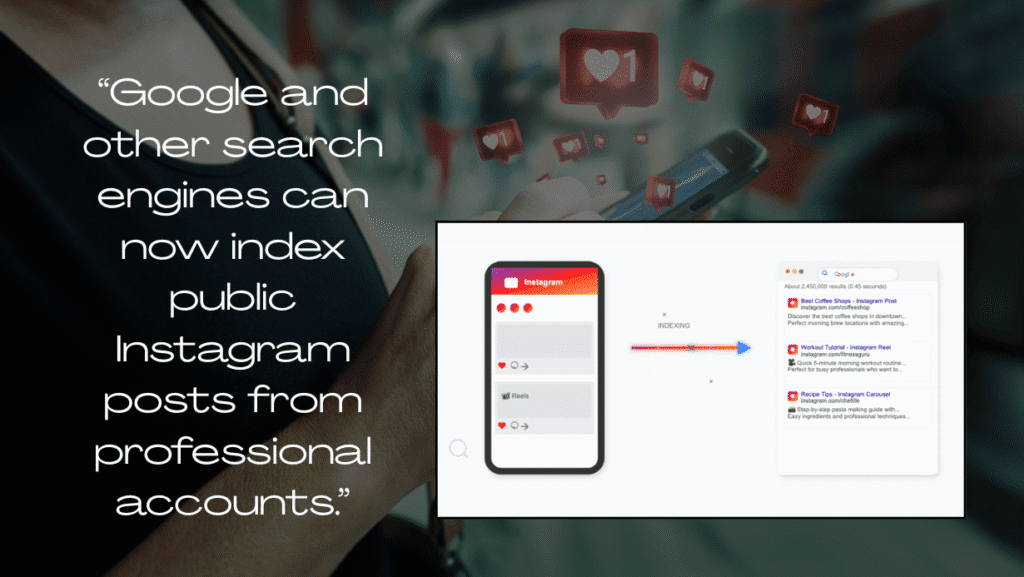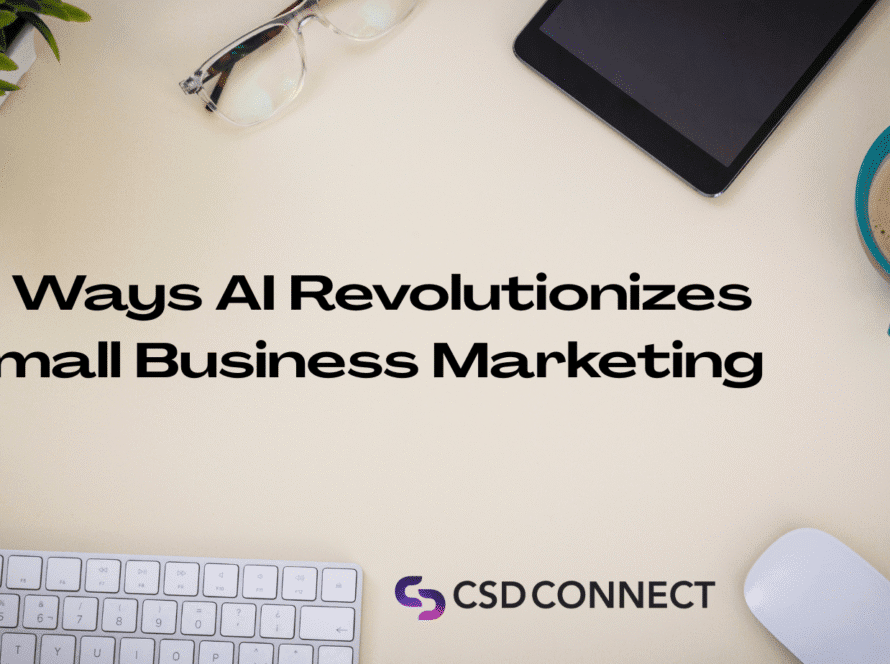Search engine optimization (SEO) has been declared “dead” many times over the past decade. Yet here we are in 2025, and SEO is not only alive – it’s more important than ever. Despite the rise of AI-driven search tools and massive changes in how people find information, the core goal remains: connect users with relevant, quality content. In fact, the search landscape is expanding, from Instagram posts showing up on Google to AI chat results summarizing web content. Below, we explore the key reasons SEO still matters in 2025 and how you can adapt your strategy accordingly.
Search in 2025: Evolving, Not Dying
Rumors of SEO’s demise have been greatly exaggerated. People are searching online more than ever. As of 2025, Google is processing over 14 billion searches per day, a 22% jump from 2024. That’s roughly 2,000 searches every second! Clearly, users haven’t stopped searching; they’re asking even more questions, often longer and more complex ones, and exploring multiple follow-up queries. AI-powered search features like summary answers at the top of results (so-called AI overviews) may instantly answer simple questions, but they also spark deeper exploration – users often dive deeper and “still click through to websites” for details. In other words, search volume is booming, not shrinking, and those clicks you earn tend to be high-intent visitors looking for substantial answers.
SEO has always adapted to changes in search behavior. From voice search and mobile-first indexing to today’s AI-infused results, SEO continues to “grow up” rather than die off. Each Google algorithm update (Panda, Penguin, Hummingbird, Helpful Content, etc.) has forced SEO to mature by rewarding quality over tricks. 2025 is no different. This is the best time for SEO to thrive because brands are finally focusing on trust, authority, and genuinely useful content instead of vanity metrics. The bottom line: SEO isn’t dead – it’s evolving, and those who evolve with it are reaping the benefits.
Instagram Embraces SEO and Indexing

One of the biggest changes in 2025 is how social media content intersects with web search. In July 2025, Instagram (owned by Meta) rolled out a game-changing update: Google and other search engines can now index public Instagram posts from professional accounts. This means your Instagram photos, videos, Reels, and carousel posts can appear in Google search results just like a webpage or blog article. Instagram is effectively no longer a closed silo – it’s allowing search engines to crawl content that was once confined to the app. For example, a public Instagram Reel of a restaurant’s signature dish might now rank in Google results for “best brunch in [Your City]”, reaching people who have never even opened Instagram.
This shift has huge implications. It blurs the line between social media marketing and SEO. Suddenly, your social content needs to be optimized for search visibility. Businesses and creators should start applying basic SEO practices to Instagram posts – think descriptive, keyword-rich captions, relevant hashtags, and even adding custom alt text to images (Instagram allows this) to describe the visual content for search engines. If you’re a local gym posting a video on proper squat form, include a caption like “How to squat properly – form tips by our Los Angeles fitness trainers” instead of a vague one. These keyword details help Google understand and rank your post when someone searches that topic. In short, SEO now extends to Instagram and Facebook content, giving you a powerful new channel to be discovered. Don’t miss out on this opportunity – treat your social posts as part of your SEO strategy.
Learn more about optimizing social media and websites for SEO with our Full Website SEO Package.
Quality Content vs. AI-Generated Content
Another hot topic in 2025 is the explosion of AI-generated content. With advanced tools (think ChatGPT-style text generators), it’s easier than ever to churn out articles. In fact, 83% of marketers now use AI for content creation, and as a result the internet is “drowning in perfectly serviceable, yet utterly forgettable articles”. So how are search engines dealing with this flood of AI content? The answer: by doubling down on quality and authenticity.
Google has been very clear that its focus is on the quality of content, not how it was produced. Whether an article is written by a human, an AI, or a mix of both, Google’s ranking systems reward original, high-quality content that demonstrates experience, expertise, authoritativeness, and trustworthiness (E-E-A-T). Using AI to generate content is not against Google’s guidelines as long as that content is helpful to users and not just made to game the rankings. In Google’s own words, “Using AI doesn’t give content any special gains. It’s just content. If it is useful, helpful, original, and satisfies aspects of E-E-A-T, it might do well in Search. If it doesn’t, it might not”. In short, AI content isn’t inherently penalized, but low-quality content (AI or not) will be filtered out by algorithms like the Helpful Content system and SpamBrain.
For website owners and marketers, the lesson is clear: don’t publish fluff. If everyone can produce baseline content with AI, you need to go above and beyond. Add real insights, original research, expert quotes, and unique perspectives that AI alone can’t provide. The bar for content is actually rising because AI can cover the basics. Focus on creating what Google calls “people-first content” – material that genuinely helps or informs the reader. This might mean using AI for initial drafts or ideas, but then heavily editing to inject human creativity and expertise. A good practice is to evaluate your content by asking: “Does this piece offer something new or better than other search results?” If not, keep refining it. SEO in 2025 rewards depth and authenticity, not just volume.
Coming Up in AI-Powered Search Results
AI isn’t just generating content; it’s also changing how search results are presented. Both Google and Microsoft’s Bing have introduced AI-driven summary answers in search. For instance, Google’s Search Generative Experience (SGE) can produce an AI summary at the top of the results page, and Bing’s chat mode can answer queries with conversational responses. Rather than killing SEO, these AI features create new opportunities – and new challenges – for getting your content noticed.
How do you make sure your brand shows up in AI summaries and answers? It comes down to authority, clarity, and structure. AI systems like large language models (LLMs) pull information from across the web and synthesize it. They tend to trust reputable, well-structured sources. In fact, forward-thinking SEO teams are now tracking an “AI exposure rate,” which measures how often your brand or content is mentioned in AI-generated results (even if users don’t click through). In the era of zero-click answers, your content’s presence in an AI overview can be just as valuable as a traditional click. Building a strong brand reputation and earning mentions on authoritative sites will increase the likelihood that AI considers your content worth citing. Essentially, the more the internet (and users) talk about your brand, the more AI will trust and feature your content.
Structuring your content for AI consumption is also key. Microsoft’s Bing team has advised that to rank well in AI-driven search, websites should implement schema markup, FAQ sections, and clear heading structures to make content easy for AI to parse. In their 2025 guidance, Bing emphasizes writing in plain language and organizing information with descriptive headers and lists, so that AI can easily digest and present it. Google’s own AI models (like its upcoming Gemini AI) reportedly favor content that’s “structured, authoritative, and conversational”. This means you should continue using SEO best practices like proper HTML headings (H1, H2, etc.), bullet points for steps or lists, and schema (structured data) for things like FAQs, reviews, and product info. These practices not only help traditional search engines understand your page, but also help AI models extract and summarize your content accurately.
A few more tips to optimize for AI-driven search:
Answer Questions Directly: If your page answers a specific question, phrase the answer in a concise way that an AI snippet could quote. Consider adding an FAQ section to target common questions in your niche.
Keep Content Up-to-Date: AI systems (especially Bing’s) use snapshots of data. Outdated content can be a liability. Regularly audit and refresh your content so that any AI referencing it is pulling current info.
Leverage Structured Data: Use structured data markup (like FAQPage, HowTo, Product schema, etc.) to explicitly tell search engines what your content is about. Google has hinted that rich results and even AI summaries might use these clues to display information.
Monitor New Metrics: Track not just clicks, but impressions in AI answers. For example, if Google SGE shows three sources in an answer and your site is one of them, that’s visibility even without a click. This “brand visibility” can lead to downstream benefits (like someone remembering and searching your brand later).
The Continued Importance of Local SEO
While much of the buzz is about AI and new tech, let’s not forget the fundamentals – and local SEO is one of them. Local businesses in 2025 rely on SEO more than ever to drive foot traffic and leads. In fact, voice search has become a major driver of local queries (“restaurants near me open now” spoken into a phone). 40% of adults use voice search daily, and these searches are often local in intent. As one industry source notes, “Local SEO is especially important since voice search is often used to find local businesses or services with ‘near me’ phrases.” This means if you’re a brick-and-mortar business, you must ensure you show up when someone asks their device for “[your service] near me”.
Key factors for local SEO in 2025 include keeping your Google Business Profile (GBP) up to date (hours, address, photos, and newly added features like messaging and Q&A), gathering positive Google reviews, and optimizing your website with location-specific keywords. The classic advice still applies: embed Google Maps on your site, list your business in relevant directories, and make sure your NAP (Name, Address, Phone) info is consistent across the web. Also, site speed and mobile friendliness are crucial, since most local searches happen on mobile devices. Google’s mobile-first indexing means your mobile site experience is the baseline for ranking.
Don’t underestimate the power of localized content either. Publishing blog posts or landing pages targeting your city or neighborhood (e.g., “Guide to the Best Coffee Shops in Cleveland”) can help capture long-tail local searches. Community engagement and local backlinks (from local news sites, blogs, or partner businesses) also boost your local authority online. In summary, local SEO is still a cornerstone for any business serving a specific area. It ensures you appear in map packs, local queries, and voice searches – driving offline conversions from online searches.
If local customers are your focus, check out our Local SEO services to improve your visibility in nearby searches.
Conclusion: SEO in 2025 and Beyond
Far from being obsolete, SEO has become a more sophisticated, multi-faceted discipline in 2025. It’s no longer just about blue links on a search results page – it’s about your content appearing wherever and however people search: in featured snippets, AI summaries, voice assistant answers, image results, local map packs, social media feeds, and more. SEO now touches everything from how you caption your Instagram posts to how an AI chatbot might quote your blog in an answer.
The common thread through all these evolutions is that SEO is fundamentally about helping people find trustworthy, relevant information. Search algorithms and AI have gotten better at discerning what content truly serves users. By focusing on quality content, technical soundness, and understanding the nuances of new search features, you position your brand to be discovered by the right audience.
Remember, SEO is a long-term game. The tactics may change (keywords to entities, links to mentions, desktop to mobile, 10 blue links to zero-click answers), but the strategy of delivering value to users remains. Invest in creating exceptional content and a great website experience, and optimize it so that both humans and algorithms can appreciate it. That’s a future-proof approach for any year.
Ready to strengthen your SEO in 2025? At CSD Connect, we offer affordably priced SEO packages tailored to your needs. Whether you need a comprehensive strategy for your entire website or a focused plan to dominate local search, we’ve got you covered. Explore our Full Website SEO package for a complete SEO overhaul, or our Local SEO package to boost your visibility in your community. Let us help you navigate the ever-changing search landscape – so you can focus on what you do best, while your customers find you easily.



